A partnership to change the future for the planet and people with every cup of regenerative, nature-positive coffee
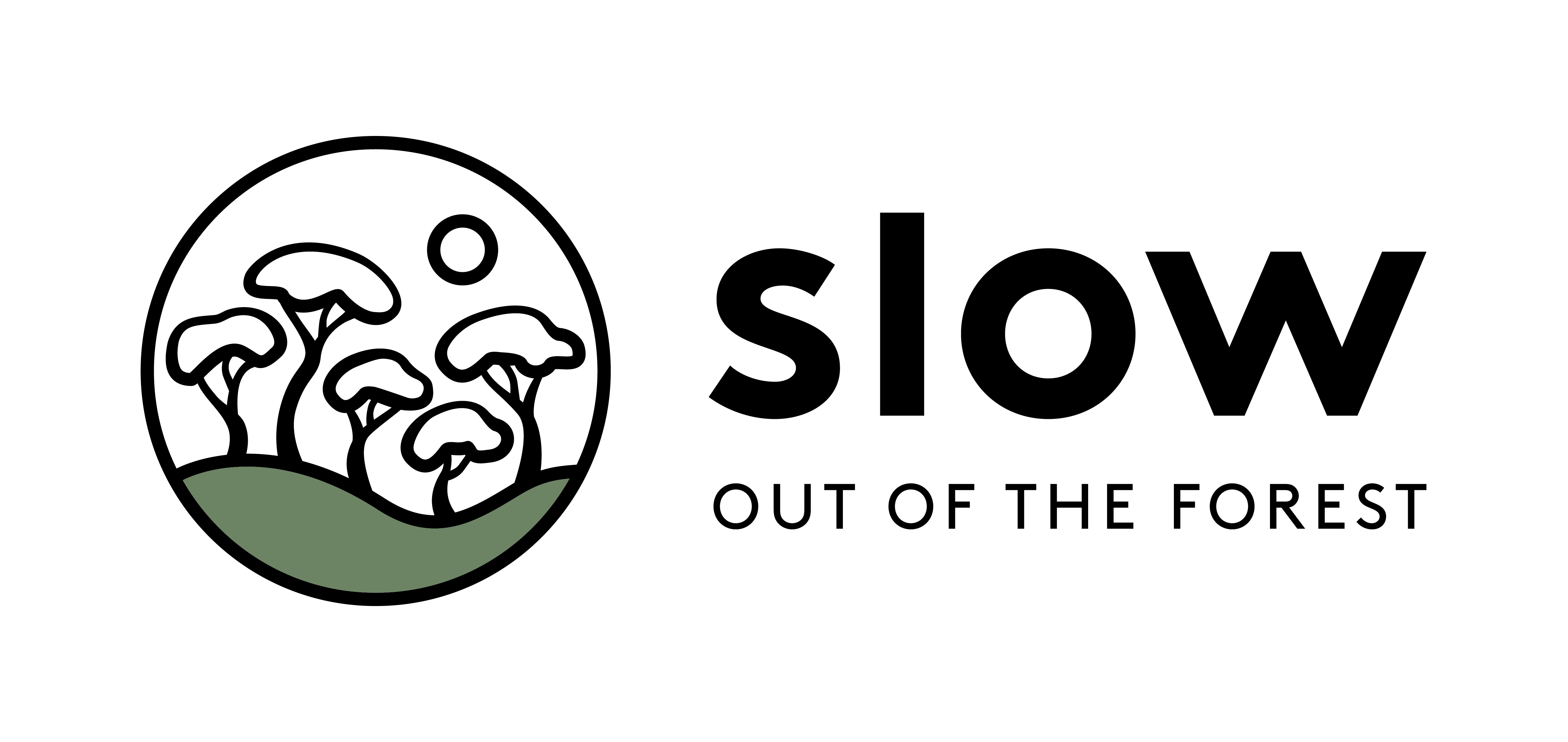

Slow is on a Mission: A Systemic Change in our Broken Food System
The foundation is the forest. Re-establishing the natural ecosystem by growing and cultivating coffee in agroforestry farms. By converting monocultures and replanting trees, our coffee becomes an impactful contributor in tackling many of our global sustainability challenges across climate, nature, biodiversity, and wildlife – all while farmers and their families experience improved livelihoods.
On this page you can follow some of our work - the collaboration with the small holder farmers, our own farms or other specific projects.
The purpose is to fill you with inspiration while you enjoy a great cup of coffee!
From Monoculture to Flourishing Agroforestry
Slow transforms degraded monoculture farms into comprehensive agroforestry systems using a detailed forest manual. The objective of the agroforestry system is to restore a natural ecosystem encompassing nature, soil, water, and wildlife.
Learn more on Slow's comprehensive forest manual below.
The Forests Make Coffee a Climate Hero
As the forests grow, their carbon sequestration is so massive that it more than offsets all the emissions in the rest of the coffee value chain across processing, shipping, roasting, and distribution. Our agroforests are naturally regenerative, meaning that we don’t rely on external inputs, further reducing climate and nature impacts across the value chain.
Slow is SBTi approved with a 2030 net zero target with a verified net negative baseline across scopes 1, 2, 3, and FLAG. The verified baseline shows that Slow absorbs 6 kilos of CO2 per kilo of coffee. The norm emissions for traditional coffee is 5 kilos, meaning that a change to Slow represents a difference of over 10 kilos of CO2 per kilo of coffee enjoyed.

Biodiversity and Wildlife
When restoring the natural habitat, Slow supports the resurgence of insects, birds and mammals, but those are just the obvious signs of bringing nature back. The forests and organic practices also play an important role in soil preservation, nutrient retention, and groundwater recharging.
The forests are built and designed on the basis of an elaborate forest manual stipulating the optimal amount of trees per hectare, securing tree species diversity, and a minimum of 4 canopy layers. Slow also prioritizes planting endangered tree species and mixing in plenty of fruit trees. The fruits become a magnet for insects, and with insects come birds, which sparks the return of mammals.
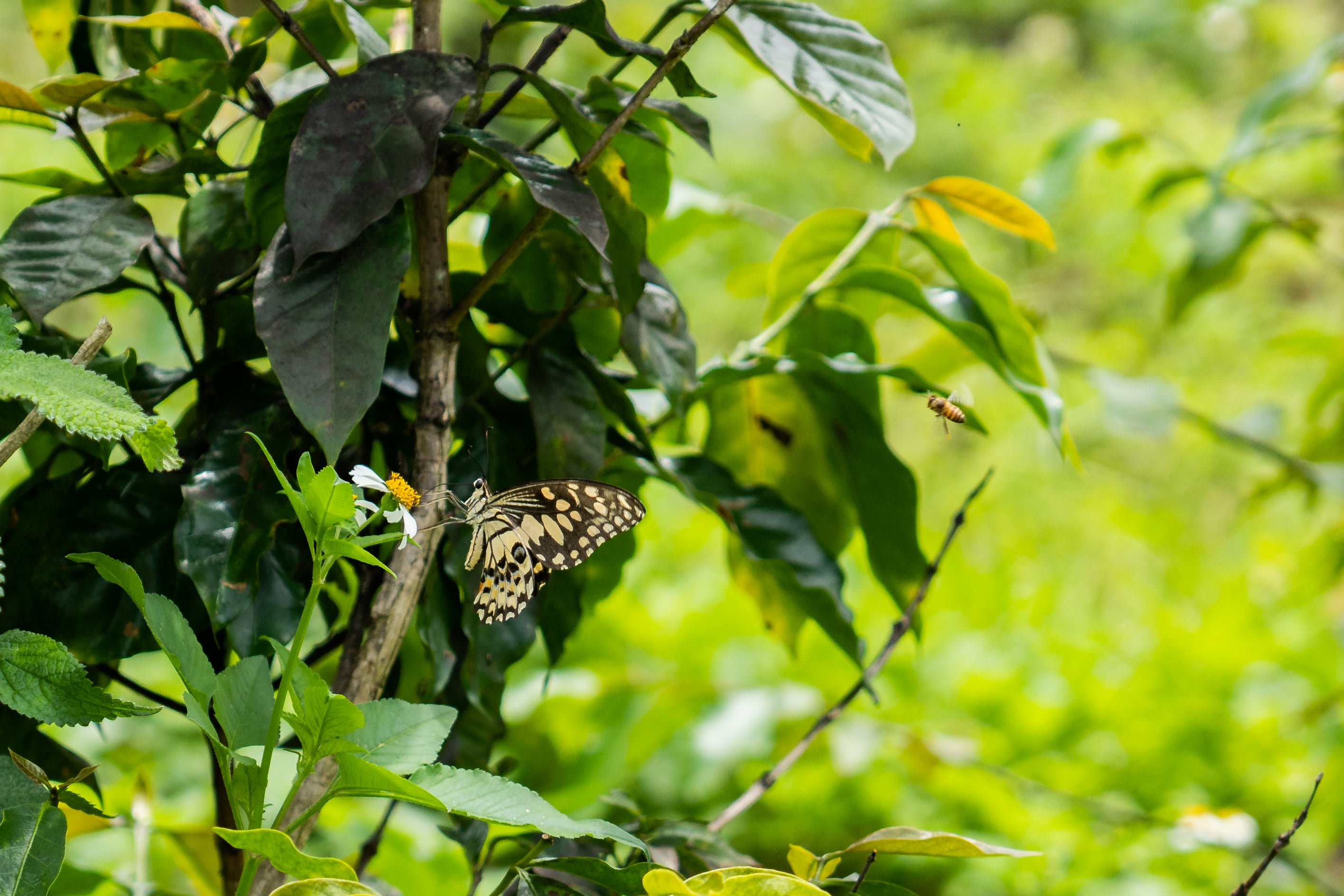
%20Slow%20Forest.jpg)
%20Slow%20Forest.png)
%20Slow%20Forest.jpg)
Improving Livelihoods for Farmers and Their Families
By working on the ground with the farmers every day, we know that true, long-lasting livelihood improvement is more than just the price per kilo. Fair pricing is of course one driver in supporting the farmers, but it is one of many.
Mutual risk mitigation, access to cash, training and equipment, conversion to organic practices, better living conditions, frequent health checks, and schooling for the farm children are just some of the initiatives that Slow implemented across our own farms or in the collaboration with small holder farmers.
%20Improving%20Livelihoods%20for%20Farmers%20and%20Families.jpg)
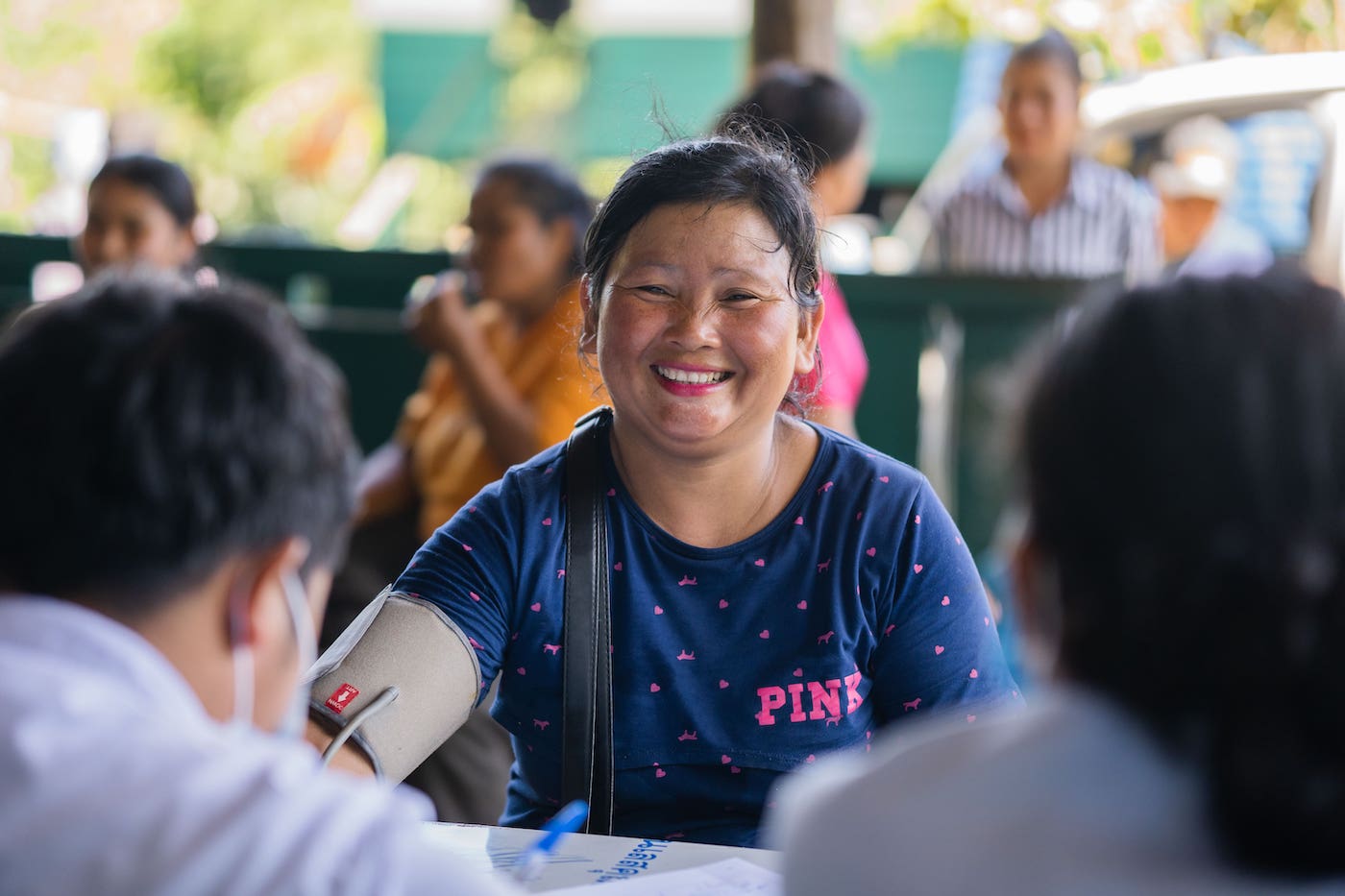

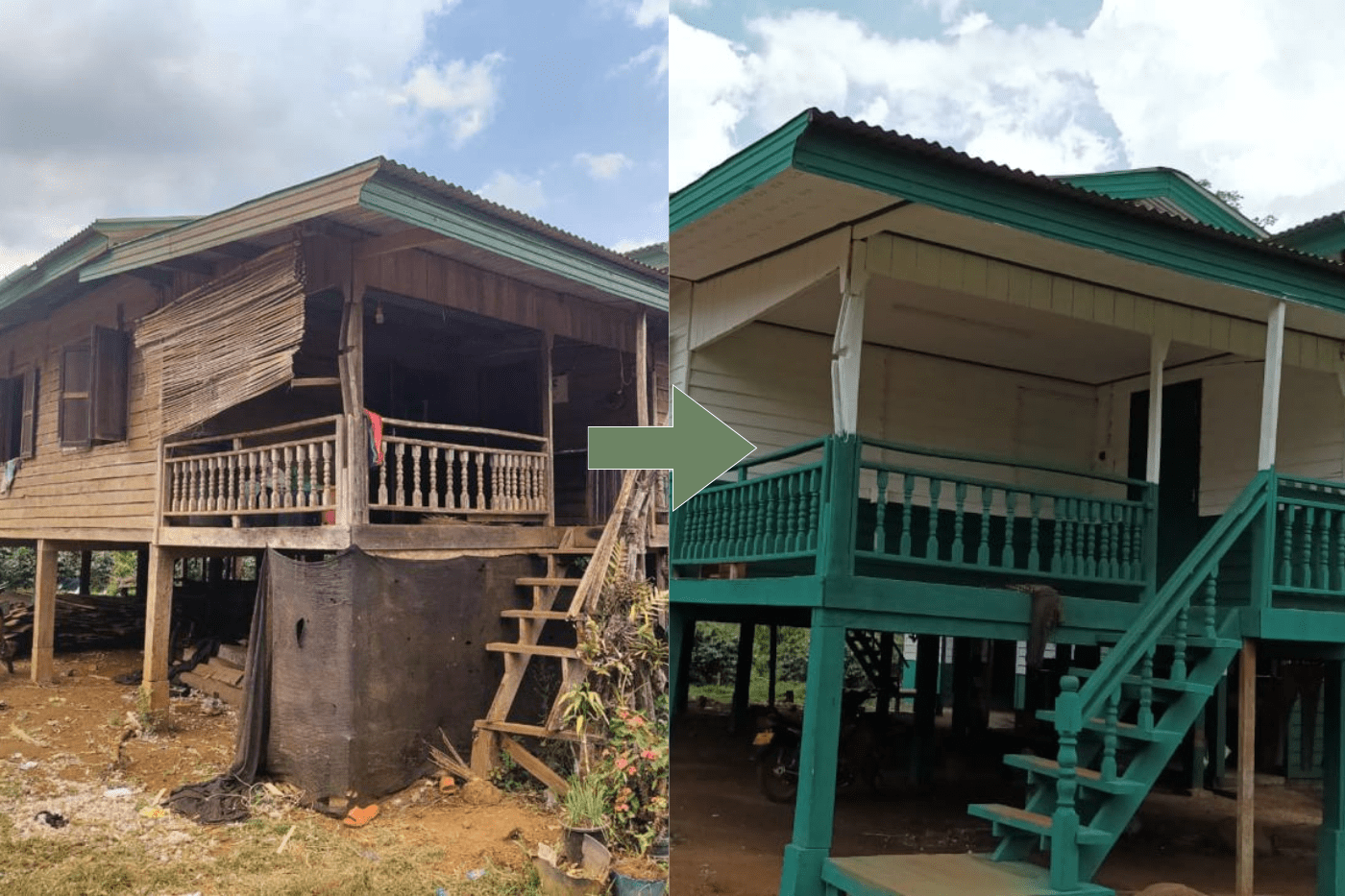
A Great Cup of Coffee – Cultivated by The Forest and The Farmers
A nature-positive brew is also about the taste and coffee experience. When grown in the shade of the forest the coffee cherries and beans get more time to develop quality and flavour, building a great foundation for the entire coffee process from crop to cup.
With a cupping score over 80, Slow is labelled as “Speciality Coffee”, and with multiple roast profiles from light to extra dark, Slow suits every pallet. With no bitterness, little acidity, and well-known coffee notes of caramel, nuts and chocolate, Slow is the perfect match for the seasoned coffee lover.
And remember: Coffee should only be black in the cup – not for the planet.
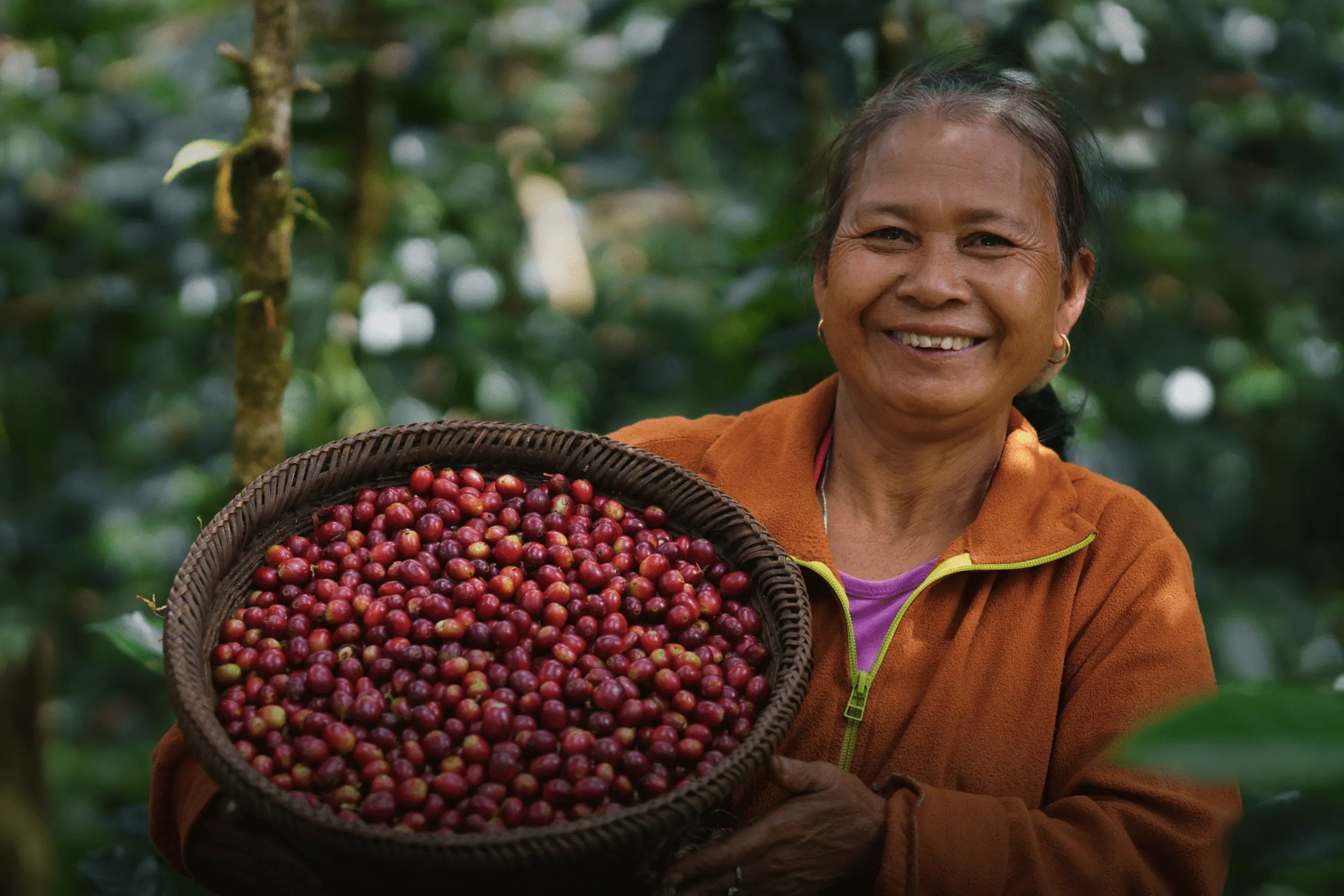
-A%20Great%20Cup%20of%20Coffee%20%E2%80%93%20Cultivated%20by%20The%20Forest%20and%20The%20Farmers.jpg)
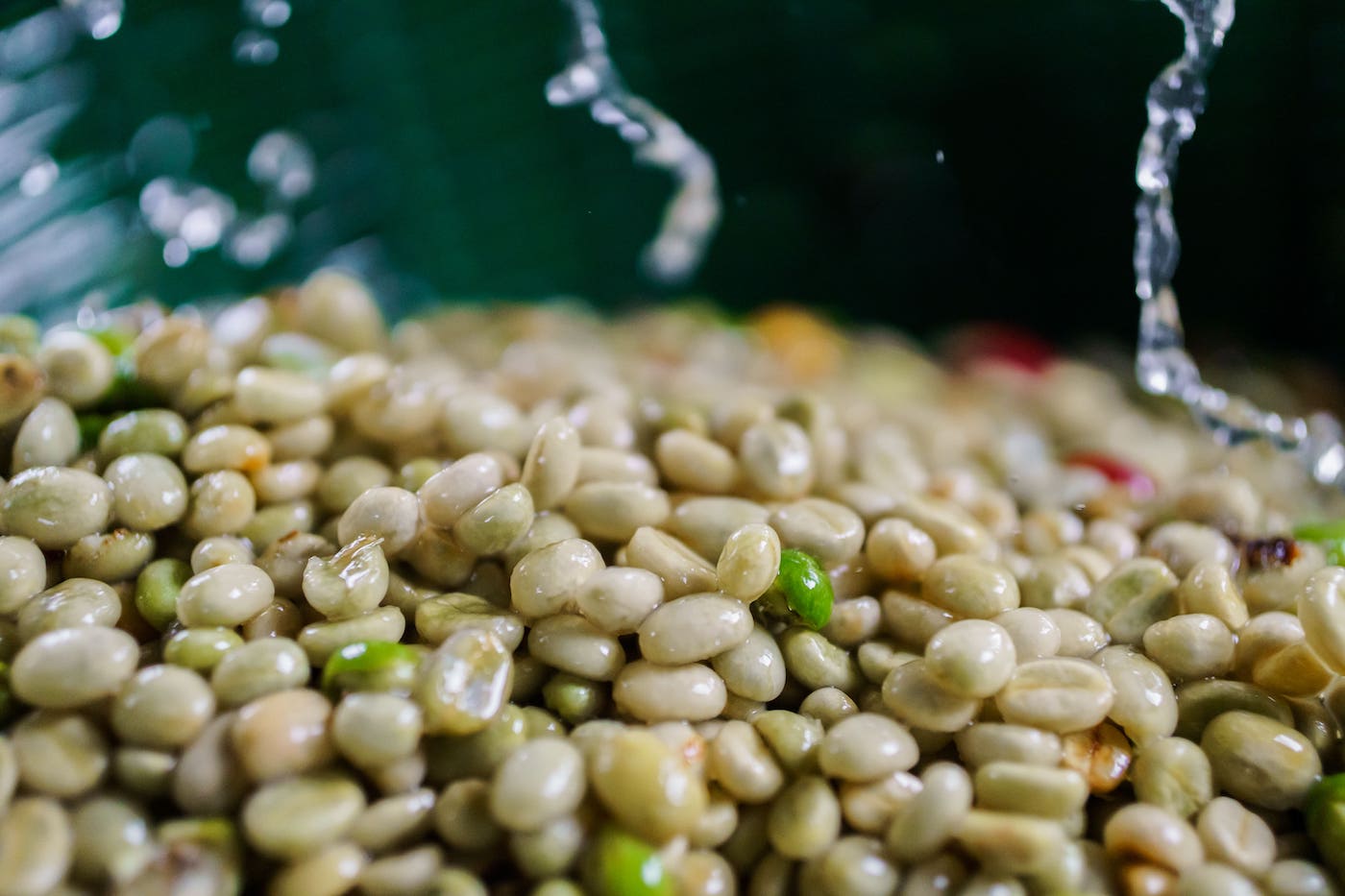
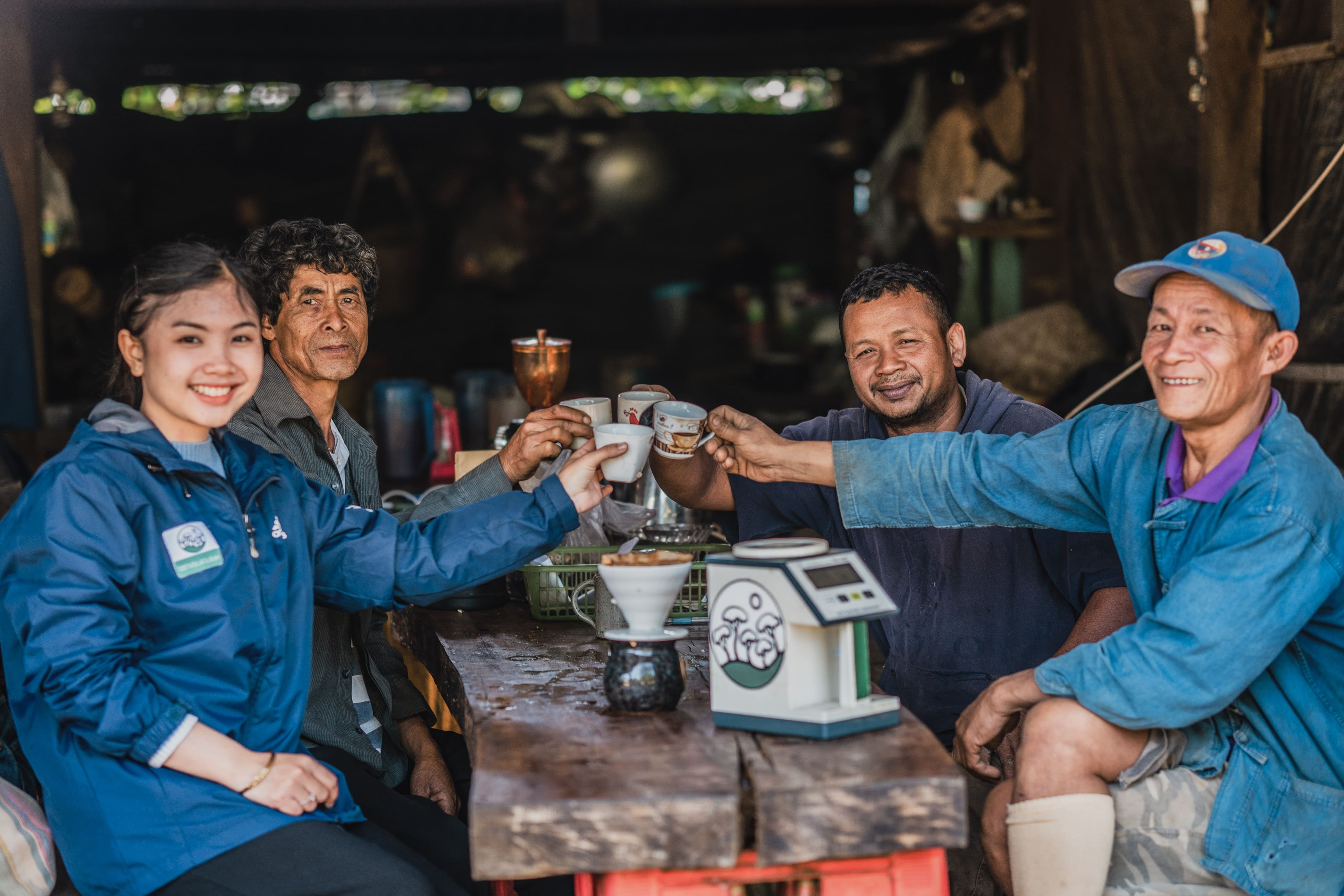
Latest News from Slow
2 min read
Earth Day: Four ways to reduce your coffee and chocolate footprint
Clara Rondonuwu: Apr 22, 2025
3 min read
Slow acquires African Coffee Roasters – A New Era for Sustainable Coffee
Slow: Mar 18, 2025